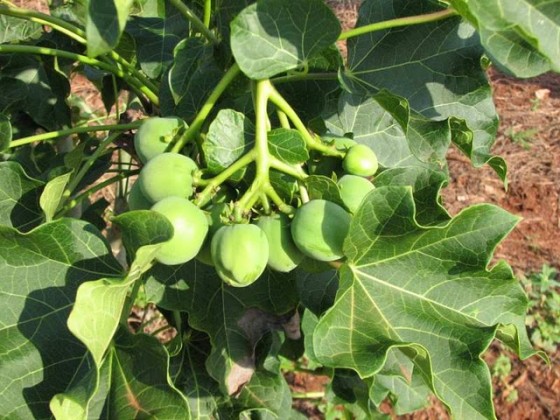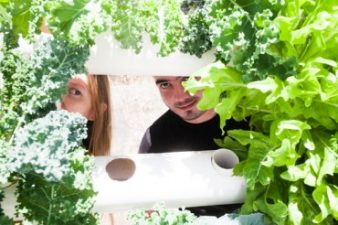 Is biofuel from the Jatropha tree- which Jordan is experimenting with- really as green and sustainable as we think?
Is biofuel from the Jatropha tree- which Jordan is experimenting with- really as green and sustainable as we think?
In a recent article, I debated whether we should encourage the Middle East to embrace biofuels as a real and sustainable alternative to the region’s current dependence on gas and oil. It followed an announcement from the Jordanian government that they would be experimenting with planting the jatropha plant, an oil-bearing shrub which produces bio-diesel that can be used in cars.
In the end, it seemed illogical to use up resources (water, land space) to produce fuel for cars which could be used to grow food and I argued against biofuels. However, comments from our esteemed readers- who argued that there was no harm in growing a plant which flourishes in places where crops couldn’t- have raised some important issues which I have tried to address here.
Fuel vs. Food Tension in Biofuels is Dangerous
A major problem with jatropha is that although the plant can grow in semi-arid conditions, to produce sufficient fuel the plant requires water and nutrients. Therefore, to increase yield better irrigation is needed and consequently many studies have concluded that “if an investment in irrigation and fertilizer is required, why not grow food crops instead.”
It’s a perfectly logical conclusion and one which highlights the real tension in the fuel vs. food debate on biofuels. Yes, the plant does create fuels by growing in places that no other crop can grow but to make biofuel production more efficient (which is understandable) resources which could be used to grow food will be used to generate fuels. Without these improvements, growing jatropha would be uneconomical especially as jatropha performs poorly on the return on labour input compared to other biofuel feedstocks.
Study: Jatropha released 6 times more GHG than Fossil Fuels
A recent study by ActionAid, the Royal Society for the Protection of Birds and Nature Kenya which tested whether biofuel from jatropha grown in the Dakatcha woodlands in Kenya is really green also has some interesting findings. The study found that the production and consumption process of jatropha in Dakatcha would emit between two and half and six times more greenhouses gases than fossil fuels. The reason behind this high carbon footprint is that woodland had to be cleared and so carbon locked up in the trees was released- in fact, forest destruction is one of the major problems with biofeuls.
The study added that the Kenyan government has decided to halt the clearing of 500,000 hectres of forest, which would have displaced 20,000 people, to grow jatropha and is now carrying out an environment assessment report.
Cutting Forests and Displacing Populations
This is not to say that jatropha is not a useful plant for poor communities- grown locally, it can provide essential fuel for generators, pumps and stoves. The problem is that once a plant is earmarked as having potential for biofuels the reality is that as opposed small-scale farming, huge plantations are grown. Chris Coxon of ActionAid told IRIN that he was concerned by the growing move towards massive plantations of jatropha in developing countries.
It appears that the constant demand for fuel is once again negatively affecting other people’s lives and livelihoods in the developing world- the only difference is that this time it’s for so called ‘green’ fuel to run our cars.
::Image via Ray Weil on Picasa.
For more on Biofuels in the Middle East see:
Is the Middle East Buying into Disastrous Biofuels?
With So Much Oil and Natural Gas, Is Biofuel A Viable Mideast Fuel Option?
Abu Dhabi’s Solid Gold ‘Biofuel’ Mercedes and other dubious ‘green’ developments



